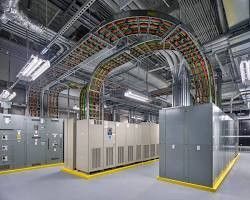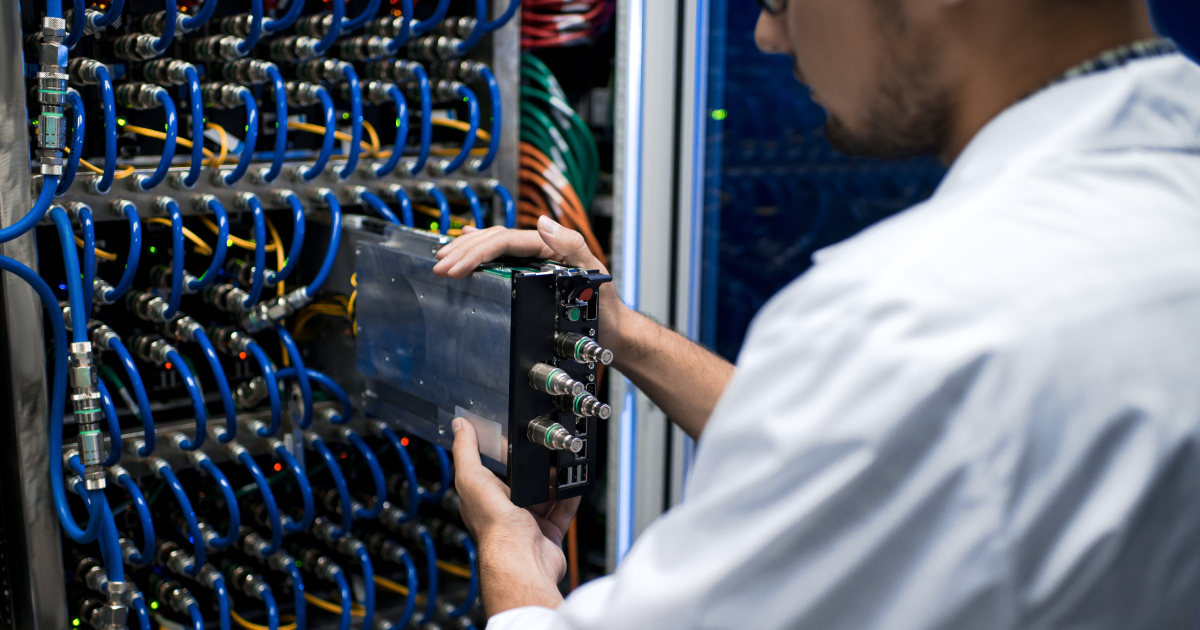How to Cultivate the Next Generation of Data Centre Specialists
This is a subtitle for your new post
If you work in the data centre construction industry, it’s likely you’re well aware of the ageing workforce in areas like engineering.
As is the case for many other technical industries, there is an urgent need to develop and recruit younger workers to fill the future vacancies that will be created by older workers retiring.
Data centre businesses have more scope to develop and upskill their workforces, as our recent remuneration report highlighted. We asked survey participants if they feel they have real opportunities for career advancement within their current organisation and the results were split — 42% said yes and 40% said no.
Fortunately, there are actions employers can take to develop future talent, retain valuable current employees, and attract more talent to data centre jobs — with targeted training.
In this article, we’ll highlight practical tips for effective learning and development programs within your business and how to adjust them to suit your company’s needs.
Customised Training Programs
Employee training is customisable in several ways, such as tailoring programs for each role type. Another effective way is to adapt training for each age demographic, or generation.
By tailoring training programs for specific age ranges, you can account for the generational differences in upbringing, values, technological acumen, and learning styles.
To help you consider what might suit your workforce, here are some cross-generational training differences:
Generational Values
Baby Boomers (Born 1946-1964)
Many Boomers appreciate recognition for their dedication and accomplishments, but have reached a stage where they’re looking for a balance between continuing to contribute professionally, while also enjoying personal pursuits. As such, they might be more interested in training that allows them to mentor and coach the next generation of leaders.
Generation X (Born 1965-1980)
This generation tends to be pragmatic, so appreciate training that directly relates to their job and offers immediate applicability. Many Gen Xers also value clear pathways to leadership roles, seeking out continuous learning opportunities to stay competitive and relevant.
Millennials (Born 1981-1996)
Millennials often seek roles where they can make a difference, valuing companies with a clear mission and positive societal impact. They see career progression as a series of varied experiences and appreciate employers that offer diverse roles, projects and learning opportunities.
Generation Z (Born 1997-2012)
This generation values workplaces that emphasise diversity, equality, and inclusion. As digital natives, they expect roles that seamlessly integrate technology, and they're attracted to companies at the forefront of tech innovation.
Strategies for Training Each Generation
Baby Boomers (Born 1946-1964)
Boomers can benefit from training that supports them to coach others, such as honing their interpersonal skills, emotional intelligence and mentoring capabilities.
Generation X (Born 1965-1980)
As more Gen X workers move into leadership roles, consider training focused on management, strategic thinking and organisational skills.
Millennials (Born 1981-1996)
Millennial workers value continuous professional development, so aim to offer certifications, badges or tangible credentials.
Generation Z (Born 1997-2012)
Gen Z is the generation of gaming and bite-sized content, so modules that deliver content concisely and/or in an interactive format are likely the most effective. As the most tech-immersed generation, they might require additional support to hone their interpersonal and critical thinking skills.
Ensure Training Is Accessible and Relevant
As we’ve hopefully demonstrated, customisation can help employers get more out of their training efforts. Customisation begins with seeking individual employee feedback about career goals and progression and developing a pathway with milestones within it. This ensures training remains relevant, thus valued, to each employee.
According to a US-based Data Centre experience survey, one of the biggest training obstacles is time. They found that 76% of respondents hadn’t completed or renewed any certificates in the past year because their work demands didn’t permit time out of the office.
While it seems the data centre construction industry workload is never-ending, training must take precedence, as it’s vital for succession planning.
To make training fit within existing workloads, consider offering a variety of training options (see the next point for additional possibilities), ensuring some have built-in flexibility. For example, on-demand webinars and modular courses staff can complete at their pace, or condensed workshops that minimise time away from other responsibilities.
Vary Your Training Offerings
Training takes on many forms and goes far beyond a standard course, seminar or workshop. Here are some examples you can use:
Staff-to-staff learning
Host regular knowledge sharing events where team members speak about recent projects, challenges faced, or new technologies or methodologies they've encountered. It’s a great way to support a culture of continuous learning.
Rotational learning
Consider rotational assignments where emerging leaders spend time in different parts of the business. This will help them gain a comprehensive understanding of your whole company – an essential for future leadership roles.
Mentoring
Mentorship is one of the best training investments you can make, as coaching is a powerful and highly successful developmental tool to support leadership growth. Pair less experienced staff with seasoned professionals. This allows for hands-on learning and knowledge transfer, and accelerates the development of budding talent.
Encourage leadership at all levels
A great way to promote professional progression is to give employees ownership. You could ensure they have autonomy over smaller projects, increasing responsibilities as they succeed. Or you could give them a chance to contribute to discussions at higher management levels, whether it’s giving feedback about processes or suggestions for improvement.
Specific Culture Training
Company culture plays a pivotal role in long-term staff tenure. You can ensure ongoing stewardship of your cultural values with specific training for emerging leaders. It equips them for future decision making that aligns with your company's core values.
Summary
By implementing a combination of these strategies, you can proactively develop and nurture a new pool of employees to lead your company into the future, even while you’re facing the dual challenge of a retiring workforce and talent shortages.
If you would like further assistance with supporting your current employees with their professional development, or in sourcing new talent for your open data centre jobs (be it Electrical Engineers or Critical Facilities Managers), please connect with one of our Mission Critical recruitment experts. We’d love to help.















